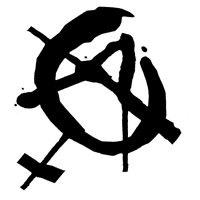 |
||||
|
Anarchist Feminism
The Evolution of Anarchist Feminism: Challenging Patriarchy and HierarchiesIntroduction: Anarchist feminism is a powerful and radical movement that combines anarchist principles with feminist analysis to challenge systems of oppression, including patriarchy, capitalism, and hierarchical structures. This article delves into the history of anarchist feminism, its key ideas, notable figures, and its continued relevance in contemporary activism. Roots of Anarchist Feminism: Anarchist feminism emerged in the late 19th and early 20th centuries as an intersectional response to the limitations of both traditional feminism and mainstream anarchist thought. It sought to address the gendered dimensions of power, domination, and inequality. Influenced by early feminist thinkers like Mary Wollstonecraft and anarchist theorists such as Pierre-Joseph Proudhon and Mikhail Bakunin, anarchist feminism sought to dismantle not only the oppressive structures of capitalism but also the patriarchal hierarchy deeply entrenched in society. Prominent Figures in Anarchist Feminism: a) Voltairine de Cleyre (1866-1912): An American writer and activist, de Cleyre is considered one of the most influential figures in anarchist feminism. She advocated for women's autonomy, reproductive rights, and economic equality while critiquing traditional gender roles and marriage as oppressive institutions. b) Emma Goldman (1869-1940): Known for her fiery speeches and radical activism, Goldman played a crucial role in promoting anarchist feminism. She championed reproductive rights, sexual freedom, and economic equality. Goldman's lectures and writings focused on the intersectional struggles faced by women and the necessity of dismantling all forms of oppression. c) Lucy Parsons (1853-1942): Parsons was an anarchist labor organizer and writer who highlighted the connections between capitalism, class struggle, and gender oppression. She advocated for women's economic independence, challenging the idea that women should be limited to domestic roles. Key Ideas and Principles: a) Anti-Authoritarianism: Anarchist feminism rejects hierarchical power structures, emphasizing the importance of individual freedom and autonomy. It challenges not only state authority but also the authority and dominance embedded within gender relationships. b) Direct Action: Anarchist feminists believe in taking direct action to challenge oppressive systems. This includes engaging in strikes, protests, and acts of civil disobedience to disrupt patriarchal and capitalist structures. c) Intersectionality: Anarchist feminism recognizes the interconnected nature of different forms of oppression, including gender, race, class, and sexuality. It highlights the need to address these intersecting oppressions to achieve true liberation for all. Anarchist Feminism in Practice: Anarchist feminists have been actively involved in various social movements and struggles. They have organized labor strikes, fought for reproductive rights, campaigned against domestic violence, and advocated for sexual and gender freedom. Anarchist feminist collectives and affinity groups have often focused on building alternative, non-hierarchical forms of community and organizing. Contemporary Relevance: Anarchist feminism continues to be a vital force in contemporary activism. It has influenced modern feminist movements, especially in challenging oppressive structures and promoting intersectional analysis. Anarchist feminist principles and tactics have found resonance in movements such as #MeToo, reproductive justice advocacy, anti-capitalist organizing, and queer and trans liberation struggles. Conclusion: Anarchist feminism stands as a radical and transformative movement that recognizes the interplay of gender, power, and hierarchy. By critiquing both patriarchy and capitalism, it offers a vision of a society where all individuals are liberated from oppressive systems. As we navigate the complexities of the present day, the spirit of anarchist feminism can continue to inspire and guide us toward a more just and egalitarian future.
Feminist AnarchistsAnarchists have a bad reputation, but its largely undeserved. Anarchy is all about freedom from oppression and rebelling against oppressors. Taken in that context George Washington was an anarchist for rebelling against the British. This doesn't imply lawlessness, merely that anarchists are rebels and freedom fighters.
Feminism and Anarchism
|
|
|||
|
|
||||
|
|
||||
 |
Health Matters - Historical Feminism - International Feminism - Lesbian Feminism - Male Feminism - Modern Feminism - Musical Feminism Philosophy of Feminism - Postfeminism - Pro-Choice Feminism - Quotes by Feminists - Religion and Feminism - Sports and Feminism |
 |
||
